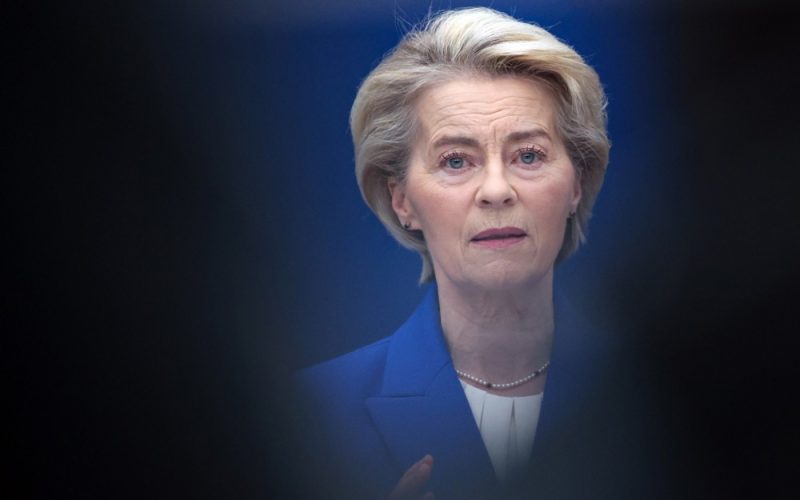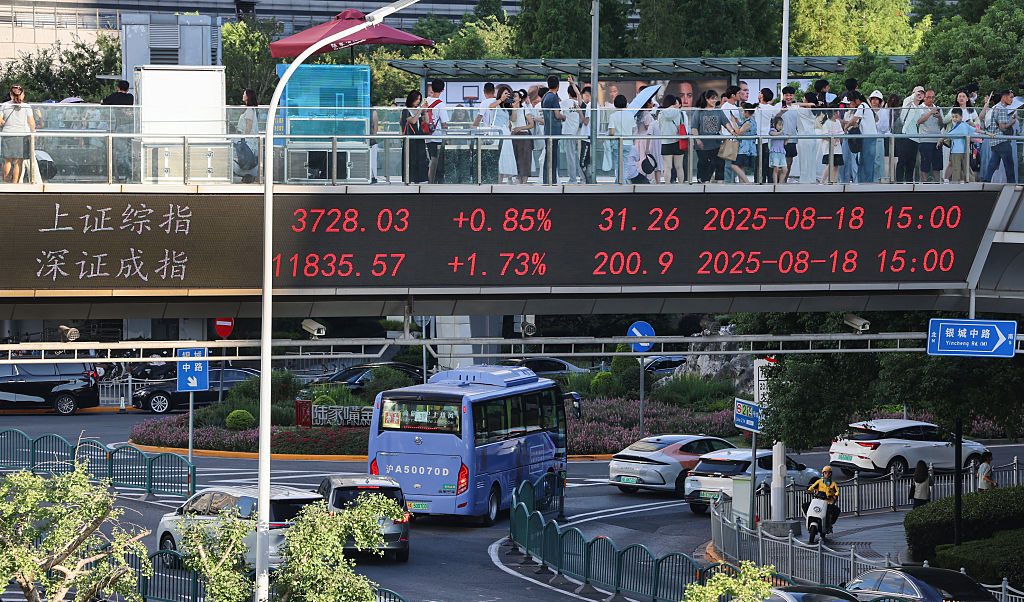China’s economic slowdown is a far greater source of anxiety for European companies than the fallout from Donald Trump’s trade war, warns a leading business association representing EU firms in the world’s second-largest economy.
“Huge overcapacity” in manufactured goods and persistently weak consumer demand have caused the business outlook for EU firms in China to fall to its lowest level since the early 2000s, Adam Dunnett, secretary-general of the EU Chamber of Commerce in China, told Euractiv.
“The number one issue for our members is the Chinese economy itself,” said Dunnett, pointing to a chamber survey showing 71% of businesses see Beijing’s slowdown as their biggest challenge.
The malaise runs deep. China’s brutal price war has forced numerous industries to slash costs to remain competitive, causing sustained deflation and declining profitability for both domestic and foreign businesses.
Domestic demand and consumption have also remained weak, despite Chinese President Xi Jinping’s efforts to “vigorously boost consumption” through monetary and fiscal stimulus.
Underscoring these structural problems, China’s economy is expected to grow by just 4% this year, according to the International Monetary Fund’s latest forecast. This is short of Beijing’s 5% target, and well below the 9% average yearly expansion since China opened itself up to the global economy in the late 1970s.
A growing economy once made China’s long-standing regulatory hurdles and “complicated” rules manageable, but they have now become far more “painful,” Dunnett added.
Critical concerns
Trump’s trade war has not disappeared entirely from the radar. Dunnett warned that it has triggered an “acute” difficulty for EU firms’ access to rare earths, which are vital for both military hardware and high-tech consumer goods, including computers and electric vehicles.
China, which accounts for roughly 70% of global rare earth mining and 90% of the world’s refining capacity, slapped export controls on the minerals shortly after Trump’s announcement of sweeping “reciprocal tariffs” on US trading partners in April.
The measures require foreign firms to apply for special export licences, which can take months to be approved. Despite Ursula von der Leyen’s announcement of an “upgraded supply chain mechanism” to address rare earth “bottlenecks” at the EU-China summit in July, Dunnett said that EU firms are still struggling to acquire the licences.
“We thought we were going in a good direction, but there were some issues in August, and then in September, we saw a significant increase in companies coming to us saying that they haven’t got the approvals that they need, and now it’s leading to production stoppages,” Dunnett added.
China-EU: Xi wants more trust, von der Leyen urges ‘real solutions’
Chinese President Xi Jinping said China and the EU must deepen trust in a turbulent…
4 minutes

The new export licence regime has severely aggravated tensions between Beijing and Brussels, which were already deeply fraught over China’s close ties to Russia and its yawning global trade surplus, which grew to a record €850 billion in 2024.
Von der Leyen also recently cited the export controls as a key reason why the EU should accelerate its efforts to “de-risk” from its second-largest trading partner, while Trump has lobbied the bloc to impose 100% tariffs on Beijing over its refusal to force Moscow to end its war in Ukraine.
Dunnett conceded that “there is a lot of pressure on the EU coming from the US” over its relations with Beijing, but stressed that “de-risking from China is not the same thing as de-prioritising China, or not doing business with, or attaching less attention to China”.
However, he warned that rising EU-China tensions have made the business environment for European firms increasingly unstable. He pointed to Brussels’ imposition of tariffs of up to 45% on Chinese EVs last year – and Beijing’s retaliation against EU pork and dairy producers – as underscoring this point.
“What changed last year? The Chinese economy would be my first one. But predictability would come second,” Dunnett said. “You think you’re safe in one industry. And, all of a sudden, there’s some sort of political dispute you think you’ve got nothing to do with – and, all of a sudden, you’re hit as a result.”
(mm)

